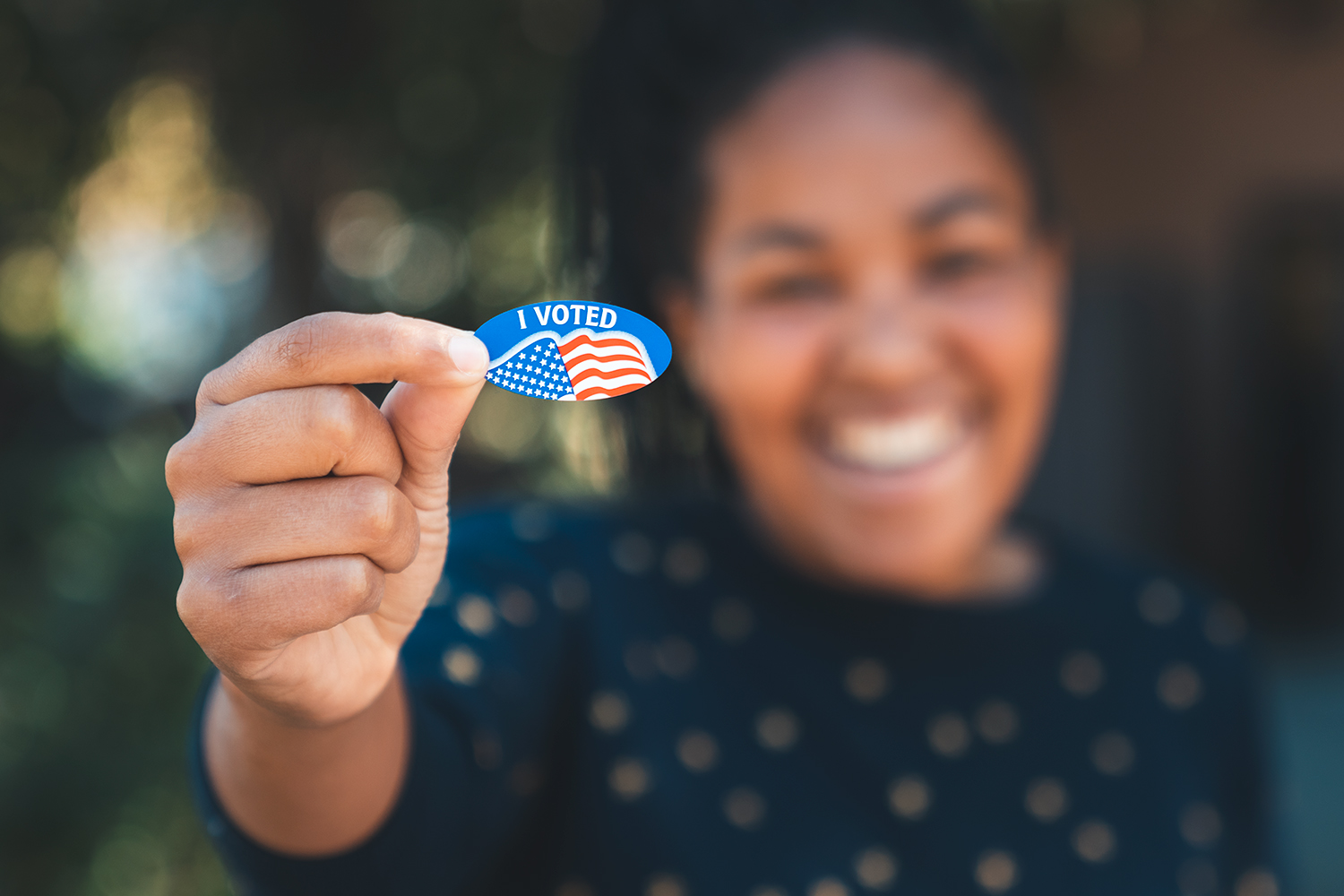Stanford is gearing up for Democracy Day 2024, the annual day of civic celebration featuring student-run programming to encourage civic engagement, dialogue, and voting. It is an academic holiday at Stanford, meaning no classes will be held to encourage students to vote and engage with related programming.
Democracy Day was created in 2021, making this year’s event the first in a presidential general election year. Jeannette Wang, ’26, chair of Democracy Day, said there are two main takeaways from this year’s program.
“We want everyone to feel like they can intersect with democracy regardless of their major or their occupation,” she said. “Second, we want people to walk away with an idea of what’s next after this election – what the next step is in staying an engaged citizen.”
Flagship events
About 30 events will take place across campus. Among the flagship events is the Public Service Career Mixer, where students can network with Stanford alumni working in public service-related careers to discuss career paths. The mixer is at 11 a.m. at the Frances C. Arrillaga Alumni Center.
At Dine and Dialogue, students can dine with faculty while discussing ways to build a culture of citizenship within the university. At least 40 Stanford faculty members are expected to attend. Dinner will begin at 5 p.m. at the Faculty Club.
Valerie Jarrett, ’78, will participate in a keynote conversation with Brandice Canes-Wrone, a professor of political science in the School of Humanities and Sciences. Jarrett is a businesswoman and former government official who served as a senior advisor to President Barack Obama. The discussion will take place at 6:30 p.m. at Dinkelspiel Auditorium.
This year’s Election Night Watch Party is expected to be the biggest yet. All are invited to watch the state-by-state returns and enjoy food and a special improv performance by Robber Barons. The party is at Treehouse at Tresidder Memorial Union at 7:30 p.m.
Other Democracy Day events include Party at the Polls, which will include a variety of programming, like All Vote, No Play, a nonpartisan effort to encourage civic engagement among student-athletes. Party at the Polls is at Meyer Green from noon to 5 p.m. and will include food trucks and performances by student bands.
Wang noted that more than half of the world’s population lives in a country that held an election this year. So, Democracy Day also aims to promote representative government for everyone, not just U.S. citizens taking to the polls this election day. To that end, Stanford’s many international students are invited to events like the Bechtel International Luncheon at 12:30 p.m. at the Bechtel International Center to listen to a panel of leading international democracy scholars and enjoy a free lunch from Blend.
California voters can cast their ballots by mail or at their local polling place when early voting begins. Voters registered in Santa Clara County can vote in person at Tresidder Memorial Union during early voting (Nov. 2-4 from 9 a.m. to 5 p.m.) or on Election Day (7 a.m. to 8 p.m.). Voting materials will be available in Chinese, Spanish, Tagalog, Vietnamese, Korean, and Russian.
Santa Clara County voters can drop off their mail-in ballot at Tresidder anytime during the early or regular voting windows. Out-of-state voters cannot drop their ballot at Tresidder; if they do, their vote will not be counted. StanfordVotes recommends out-of-state voters drop off their ballots at the Stanford post office 7-10 days before the election to ensure their vote is counted. Visit stanfordvotes.org for more information.
A complete schedule of events is available on the Democracy Day website.
A skill for life
For weeks, students have led a campus-wide campaign called “StandForDemocracy” to encourage their peers to reflect on the democratic process and their own participation. The campaign is led by five student groups – Democracy Day, Stanford in Government, StanfordVotes, Stanford Political Union, and Stanford Women in Politics – and has featured everything from an election-themed trivia night at The Arbor to a public service mixer.
“I hope that our efforts leading up to the election will garner excitement in students who aren’t normally interested in civic engagement,” Aubrey Merrill, ’26, co-chair of Stanford Votes, told Stanford Report last month.
Aside from voting, Wang said that organizers hope students will engage in constructive dialogue. “We’re encouraging people to have conversations about difficult issues with people they disagree with,” she said. “That’s a skill we’ll need after we graduate. To see the change that you want, you must be able to have hard conversations.”
Although the campaign will end Tuesday when the polls close, Wang said the need for citizens to remain engaged will continue.
“Regardless of the outcome, you need to be able to move forward and know how you’re going to fit into the democratic process and make civic engagement a habit,” she said.
Democracy Day was founded in 2021 by Sean Casey, ’22, and Jonathan Lipman, ’22, with the goal of engaging students in the political process. Students campaigned for it to be an academic holiday to encourage voting, especially among students. The Faculty Senate approved the motion in June 2021, designating the first Tuesday after the first Monday in November – the day set by law as Election Day – for the annual event.
